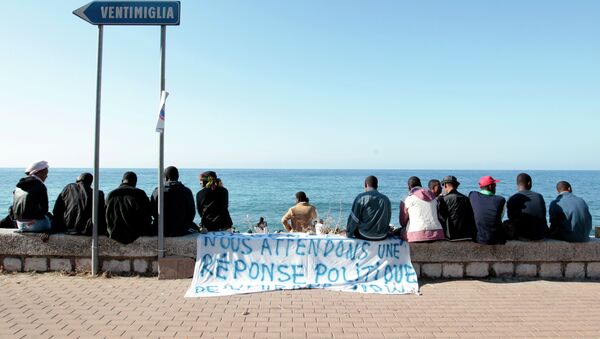"The question of migration acts as a thermometer, showing that from an integration, economic and political point of view, the EU is in a situation of contraction that pushes EU countries to extremes," Nicolas Kazarian, a political analyst and an associate research fellow at the French Institute for International and Strategic Affairs IRIS, said.
According to Kazarian, the European Union today is weaker in terms of the economy and less competitive in global markets than during the period of its establishment. Economic woes and particularly the debt crisis in Greece have contributed to popular support for right parties.
"From a political point of view, there is no more common political goal for EU countries as it was at the creation of the Union. In these circumstances, European identity has turned to the idea of nationalism as a particular identity of each country, patriotism," Kazarian said.
"The thing about immigration is that it feeds into an easy populism… It’s very easy to make anti-immigration comments and become popular and gain votes for it," Barber told Sputnik.
According to Barber, it's not that ordinary Europeans became extremely right-wing, but persisting economic problems and austerity measures are pushing them towards the parties able to provide them with an alternative position.
"Mainstream political parties all say the same thing, usually concerning the austerity measures, and of course it’s unpopular. It’s ordinary people that see the effects of it… That’s why we’ve seen the rise of … insurgent parties, not just right-wing ones," Barber said.
Still, as Thomas Klau, European analyst and former Senior Policy Fellow at the European Council on Foreign Relations pointed out, the fact that the majority of Europeans continue to support their country's membership of the European Union, despite all the current problems, suggests that the idea of supranational integration remains prevalent.
"Frustrations, difficulties and disappointments notwithstanding, voters overwhelmingly prefer the continuation of the great European marriage to its dissolution and divorce," Klau told Sputnik.
A survey conducted by ICM Research for Sputnik was conducted in May, interviewing 4 097 people in Britain, France and Spain. The participants were asked about the reasons for the growing popularity of right parties in Europe.



